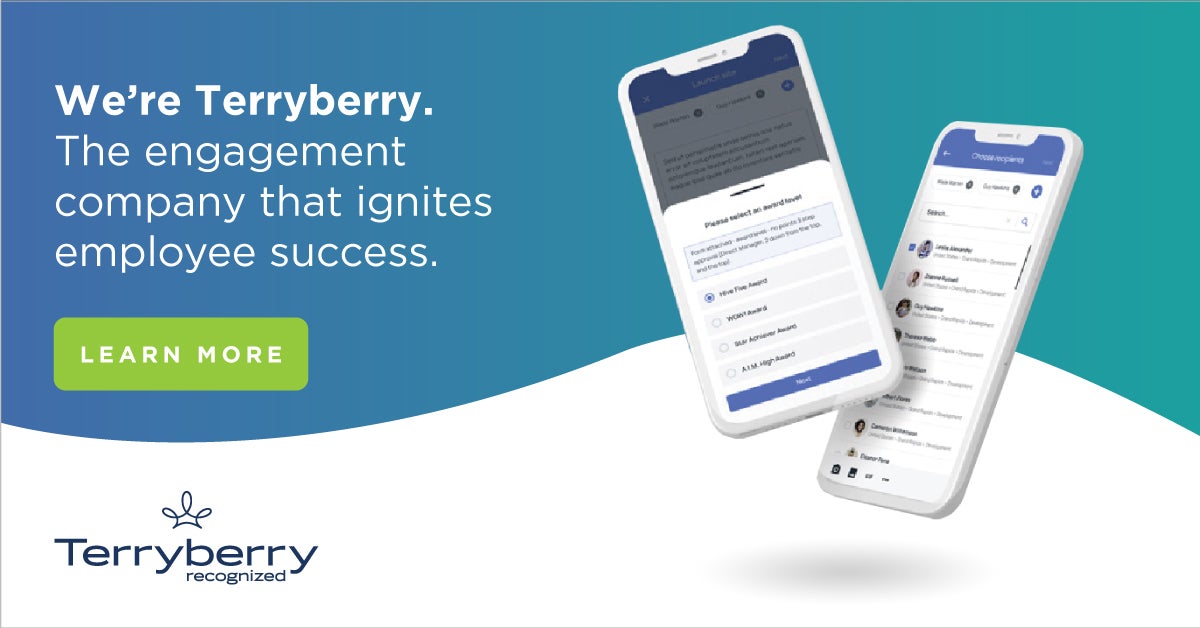February 24, 2023

In today's fast-paced working environment, the importance of employees' mental health cannot be overlooked.
Pressure to perform, meet deadlines and go above and beyond can significantly affect employees' mental wellbeing.
For employers, neglecting employee mental health is no longer an option. In fact, it can actually do more harm than good! As struggling employees are more likely to be disengaged, unproductive and regularly absent
Proactive employers have identified the impact mental wellbeing has on a business and have acted fast. The role of employee assistance programs within organisations has grown, with many employers relying on such programs to manage employee mental health and support staff when they need it most.
What is an employee assistance program?
An employee assistance program is a confidential counselling service offering employees support and advice on medical, health and wellbeing issues. Some programs can even offer employees personal legal and financial advice when required. EAPs operate by providing free and anonymous counselling, referrals and follow-up services for employees in need.
Employers offer the mental wellbeing benefit, generally as part of a benefits package. Support offered to employees can be accessed via a telephone helpline with the provision of face-to-face counselling if required. Some EAPs are also available for the immediate family of employees. The service is entirely confidential and anonymous, so employees can access the help they need without worrying about people finding out.
EAPs provide an early source of practical and emotional support for employees facing issues inside or outside of work. Having access to a wellbeing benefit is crucial for many employees. EAPs are extremely useful by helping to assist with personal issues before they begin to impact an employee's job performance or their mental, physical and financial wellbeing.
Employees can use EAPs for several reasons, including mental issues such as stress and depression and workplace problems such as toxic working environments, bullying, harassment and employee burnout.
How can EAPs support staff?
- Stress
- Depression
- Anxiety
- Emotional problems
- Family problems
- Debt
- Legal worries
- Relationship issues
What are the features of employee assistance programs?
24/7 accessibility
Employees looking to use their EAP have the pleasure of doing so whenever they please.
Trained professional counselling
Some employees using the wellness benefit will be experiencing extreme mental health problems. Therefore it is crucial that trained professionals conduct all counselling sessions.
Anonymous and confidential
Talking about mental health is seen as embarrassing, so many people never reach out. EAPs offer completely anonymous and confidential sessions giving employees complete privacy.
Accessible through benefits hub
EAPs are generally included within benefit packages; therefore they are accessible through a benefits hub. This makes for quick and easy accessibility.
Face-to-face counselling if required
Should employees require serious help EAPs facilitate face-to-face counselling.
What are The Benefits of Employee Assistance Programmes?
Benefits of EAPs For Employees:
- Access to Support - Employees have access to free support to help find solutions for their issues before they begin to impact their work life - poor mental, emotional and physical health all affect employees' work performance, engagement and morale.
- Reduced costs - Finding support for mental health is often expensive. As the cost of counselling and therapy is so high, many never get the opportunity to find the help they need. Access to free counselling gives employees who would otherwise never address their problems a chance to talk through their issues with a trained professional.
- Cost of living support - As the cost of living has risen exponentially, more and more employees are facing financial problems, and it is having a knock-on effect on their mental wellbeing. Employees facing financial anxiety and stress have the opportunity to talk through it with this benefit.
Benefits of EAPs For Employers:
- Reduce Absenteeism - Currently, around 50% of absences at work are due to mental health. With increasing pressures and poor support, more and more employees are taking sick days to look after their mental health. Doing something about employees' mental health can help to reduce absences and keep an organisation running smoothly.
- Morale and Productivity - Employees experiencing mental health problems are likely to be more distant and less engaged in their work. Prioritising mental health support with wellness initiatives and benefits helps reduce mental health's impact on organisations and helps support those experiencing problems. Offering employee assistance programs can support employees experiencing mental health problems and get them back to their best quicker.
- Brand Attractiveness - Looking after your employees isn't just helpful for staff, it can also be greatly beneficial for a business too. Wellbeing benefits are highly sought after, so much so that employees will leave their current role for another with better wellbeing support. Offering health benefits such as EAPs is sure to see your business gain more attention from potential candidates.
Mental Health in the Workplace
Oftentimes employees' troubles with mental health does not originate at work. In fact, most problems develop outside the workplace. These issues outside of work can build up and become too much to handle. This is when employee's problems can creep into the work environment. If left unnoticed, it can begin to affect employees' performance, engagement and motivation at work.
Employees struggling with their mental wellbeing in the UK steadily increasing. On average, 1 in 6 workers are currently facing a mental health problem.
It comes as no surprise that employees are struggling with their mental health. The past couple of years has been tough for everyone, between isolated working at home during Coivd. To facing record high price increases across food, fuel and utilities. Pair all of these issues with a stressful job or work environment, and it becomes clear why so many people are struggling.
What can employers do to help?
Unfortunately, most employees struggling with their mental health rarely reach out on their own. Without asking for support, employees facing mental health problems often come under scrutiny from peers and leaders due to a lack of understanding. This only heightens the problem.
It is crucial for employers to reach out and check in with employers regularly to ensure that if employees struggle with their mental wellbeing, they feel comfortable enough to ask for support.
How to recognise employees struggling with their mental health
Employees facing issues with their mental health often show signs that something isn't quite right. Both colleagues and employers must look out for the signs and offer support when necessary.
What are the signs of a struggling employee?
- A change in mood or personality
- An abnormal amount of leave
- Distanced from work and work conversations
5 Simple Ways to Support Employee Mental Health
Recognising employees facing mental health problems is only the beginning. Employers must remember to be sensitive when handling topics such as mental health, as many feel embarrassed or ashamed about.
Work is one of the biggest contributors to stress for many people, so addressing mental health in the workplace may cause some employees discomfort or make them feel uneasy. Luckily there are ways to support mental health within the workplace.
Be positive
Creating a stressful, pressured environment is not good for anyone's mental health. Adopting a positive attitude towards mental
Be open about mental health
Addressing mental health in the workplace helps to wash away the stigma around mental health and educate employees about what causes problems and ways in which they can find support.
Mental health days
Employee mental health days are similar to sick days and are available for employees to take to do something helpful for their mental health. Employees undertaking mental health days for longer than seven days must provide a statement of fitness to their employer.
RELATED: 12 Physical, Mental, and Financial Wellness Ideas You Can Start Today
Wellness Support
Offering employees wellness programs to help across mental, physical and financial wellbeing is greatly beneficial and provides employees with the tips, tools, resources and discounts to support their wellbeing
RELATED: A Step-By-Step Guide to Developing Employee Wellness Programs
Increase awareness of wellbeing benefits
Organisations providing wellness benefits must ensure their staff are aware of the benefits available to them. The annual usage of EAPs has increased to 12%, however, the wellbeing benefit is still under utilised as employees are unaware of its existence and what it can do to help them.
RELATED: 6 tips for successful employee benefits communication
How can employee assistance programs improve employee's mental health
Wellbeing benefits such as employee assistance programs are crucial for improving mental health in the workplace. Offering employees access to free counselling is invaluable and can help to reduce problems before they develop too far.
Access to counselling and advice services:
Some employees would never dream of asking for external support, let alone paying for it. EAPs expose more people to support they would otherwise ignore. The wellbeing benefit also helps employees facing minor issues whether they're at work or at home. Not every employee will face serious mental health problems such as depression and anxiety. Some employees may need someone to talk to about problems at work or with their partners. Adopting an EAP is invaluable in these situations.
RELATED: What benefits do employees value the most in 2023
Crisis intervention:
Employees experiencing extreme mental health problems are often left with nowhere to turn. When dealing with a mental health, physical health or personal crisis employees have access to hotlines, face-to-face counselling and professional advice on how to work on the issues.
Prevention and education:
Identifying a problem with mental health is often difficult, and many try to brush it off. EAPs allow employees to discuss their concerns and problems before developing further. Addressing issues early significantly reduces their impact on an employee's personal and work life.
Supporting managers:
Some employee assistance programs provide employers with support, resources and training to help any employees facing problems. Information about recognising the signs of stressed employees and how to respond to mental health concerns help both employees and employers to better handle these situations.
Creating a successful EAP
Employee assistance program's success heavily relies on an organisation's culture. The more supportive and educated a business is regarding mental health the more valuable the benefit becomes. At its best, EAPs can help to support employee wellbeing and promote a more engaged and motivated workforce. To see how an employee assistance program or other wellbeing benefits can impact your business, speak to one of our engagement specialists today.

